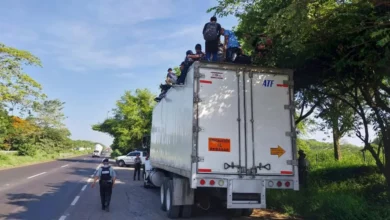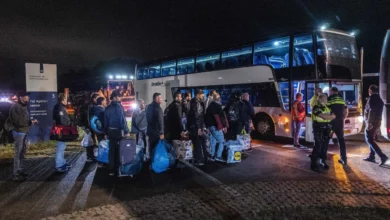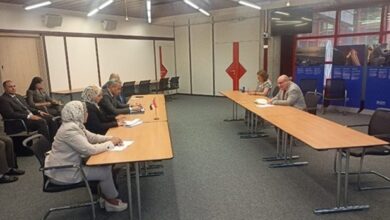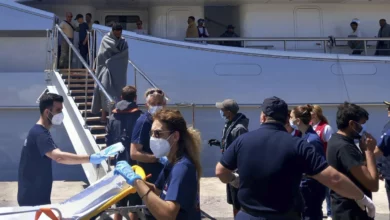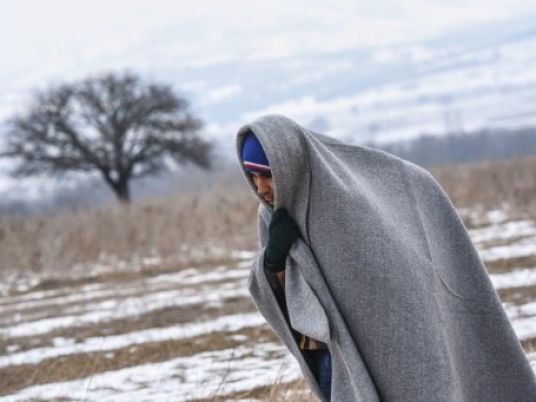
European governments have responded to fears of terrorism and an influx of Muslim refugees by cracking down on basic freedoms, Human Rights Watch warned Wednesday.
In a departure from previous years, the New York-based group's annual report did not open with the latest news from active war zones, but instead focused on the knock-on effects of conflict.
"Fears of terror attacks and of the potential impact of refugee influx led to a visible scaling back of rights in Europe and other regions," HRW director Kenneth Roth warned, introducing the report.
"In Europe and the United States, a polarizing us-versus-them rhetoric has moved from the political fringe to the mainstream," he wrote.
"Blatant Islamophobia and shameless demonizing of refugees have become the currency of an increasingly assertive politics of intolerance."
The report cites the example of France, where — in the aftermath of the November 13 attacks on bars, a concert hall and a sports stadium in Paris — authorities have tightened emergency laws.
Suspected radicals have been confined to house arrest without trial, and police have been given stronger powers to search addresses without a judicial warrant.
In its report, HRW warned that these "potentially indiscriminate policing techniques" risk exposing blameless young Muslim men to racial profiling.
The crackdown in Europe has been mirrored in the United States by heightened campaign rhetoric from figures such as Donald Trump, the Republican White House hopeful who has proposed banning Muslims from entering America.
Better refugee resettlement
Scapegoating Muslims and refugees, the report argues, "hurts and alienates populations crucial to counterterrorism efforts."
In addition to jihadist attacks, Europe has faced the challenge of a stream of Muslim refugees fleeing conflict or persecution in the Middle East and north Africa.
This has stirred anti-immigration sentiment and fear of crime among the European population, particularly in the wake of reported New Year sex attacks by immigrant gangs in Germany.
But, according to Human Rights Watch, the right response to such inflows is not more repressive border and immigration enforcement, but a better controlled program of refugee resettlement.
"The effect of European policy so far has been to leave refugees with little choice but to risk their lives at sea for a chance at asylum," Roth wrote.
"With boats arriving helter skelter at various Greek islands, it is difficult to screen systematically to stop a would-be terrorist from slipping in," he argued.
"A safer and more humane alternative would be for the EU to increase refugee resettlement and humanitarian visas from places of first refuge such as Lebanon or Pakistan."
The group saluted newly elected Canadian Prime Minister Justin Trudeau's decision to welcome 25,000 Syrian refugees — some 10,000 have already arrived.
But the report urged the United States — where President Barack Obama has promised places for 10,000 Syrians but officials are slow to process applications — and other richer Western and Gulf Arab countries to pull their weight.
Invisible threat
And, while a retreat in human rights has been visible in democratic countries, it has been matched by another turn of the ratchet under authoritarian regimes.
In Russia and China, for example, the human rights situation is worse that it has been in any period since the end of the Cold War, the group said.
"The Kremlin has been crushing Russian civil society, one of the most important elements to have emerged from the demise of Soviet rule," the report says.
"The new, poisonous atmosphere helped the Kremlin to divert attention as Russia's economic woes deepened."
The 340-page report, which combines reporting from more than 90 countries, also covers forced child marriage in some developing countries.
This practice, which the report notes has declined in some territories, is again on the increase in some vulnerable populations, for example among Syrian refugees in camps in Jordan.

